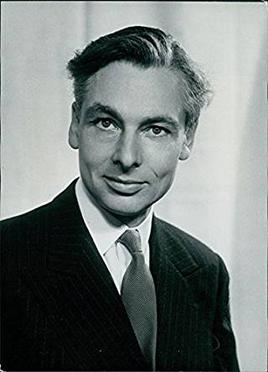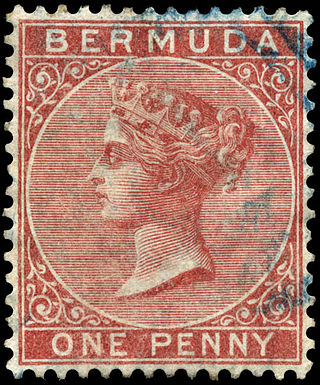Related Research Articles

Bermuda is a British Overseas Territory in the North Atlantic Ocean. The closest land outside the territory is in the American state of North Carolina, about 1,035 km (643 mi) to the west-northwest.

Bermuda was first documented by a European in 1503 by Spanish explorer Juan de Bermúdez. In 1609, the English Virginia Company, which had established Jamestown in Virginia two years earlier, permanently settled Bermuda in the aftermath of a hurricane, when the crew and passengers of Sea Venture steered the ship onto the surrounding reef to prevent it from sinking, then landed ashore. Bermuda's first capital, St. George's, was established in 1612.
This is a demographyof the population ofBermuda including population density, ethnicity, education level, health of the populace, economic status, religious affiliations and other aspects of the population, including changes in the demographic make-up of Bermuda over the centuries of its permanent settlement.

British North America comprised the colonial territories of the British Empire in North America from 1783 onwards. English colonisation of North America began in the 16th century in Newfoundland, then further south at Roanoke and Jamestown, Virginia, and more substantially with the founding of the Thirteen Colonies along the Atlantic coast of North America.

The City of Hamilton, in Pembroke Parish, is the territorial capital of the British Overseas Territory of Bermuda. It is the territory's financial centre and a port and tourist destination. Its population of 854 (2016) is one of the smallest of any capital city.

St. George's, located on the island and within the parish of the same names, settled in 1612, is the first permanent English settlement on the islands of Bermuda. It is often described as the third permanent British settlement in the Americas, after Jamestown, Virginia (1607), and Cupids, Newfoundland (1610), and the oldest continuously-inhabited British town in the New World, since the other two settlements were seasonal for a number of years.

Sir Richard Christopher Sharples, was a British politician and Governor of Bermuda who was shot dead by assassins linked to a small militant Bermudian Black Power group called the Black Beret Cadre. The former army major, who had been a Cabinet Minister, resigned his seat to take up the position of Governor of Bermuda in late 1972. His murder resulted in the last executions conducted under British rule, in 1977.

Joseph Hayne Rainey was an American politician. He was the first black person to serve in the United States House of Representatives and the second black person to serve in the United States Congress. His service included time as presiding officer of the House of Representatives.
The following is a list of places of interest in Bermuda.

The governor of Bermuda is the representative of the British monarch in the British overseas territory of Bermuda.

The Royal Gazette is a Bermudian, English-language daily newspaper. Founded in 1828, it is Bermuda's only daily newspaper.

The following is an alphabetical list of topics related to the British Overseas Territory of the Bermuda Islands.

Their Majesties Chappell, St. Peter's Church, in St. George's, Bermuda, is the oldest surviving Anglican church in continuous use outside the British Isles. It is also reportedly the oldest continuously used Protestant church in the New World. A UNESCO World Heritage Site, St. George's Town is the oldest surviving English settlement in the New World, having been settled by the Virginia Company in 1612.

The following outline is provided as an overview of and topical guide to Bermuda:

William Goddard was an early American patriot, publisher, printer and postal inspector. Born in New London, Connecticut, Goddard lived through the American Revolution and American Revolutionary War, during which he opposed British rule of the colonies through his actions and publications. He was a major figure in the development of the colonial postal system, which became the U.S. Post Office after the American Revolution.

Bermuda, a group of islands in the North Atlantic Ocean, was previously uninhabited when the British established a settlement in 1612.

The Featherbed Alley Printshop is a museum featuring a replica Gutenberg press, and is located in the lower level of the Mitchell House, in St. George's, a UNESCO World Heritage town in Bermuda. The upper level of the house holds the St. George's Historical Society Museum. The house is named for its architect, Walter Mitchell, who had it built in the 1720s. The museum is a replica of an 18th-century printshop, though its location was never formerly the site of such a business . The museum is largely dedicated to the history of Bermuda's first newspaper and printing business, that of Joseph Stockdale, who published The Bermuda Gazette. Stockdale actually operated his business from the cellar of his own house, the Stockdale House, on Printer's Alley. Following his death, Stockdale's heirs continued to run operate the business from Stockdale House until relocating to Hamilton, Bermuda, following the capital's move there in 1815.

Lieutenant-Colonel George James Bruere was a British Army officer and colonial administrator who served as governor of Bermuda from 1764 until his death in 1780. Of all Bermuda's governors since 1612, his term of office was the longest. He had a difficult time during the American Revolutionary War and is thought to have died of chronic stress caused by the interplay of Bermudians and American rebels.
Edgar Fitzgerald Gordon, born in Trinidad and Tobago, was a physician, parliamentarian, civil-rights activist and labour leader in Bermuda, and is regarded as the "father of trade unionism" there: "he championed the cause of Bermudian workers and fought for equal rights for black Bermudians, thereby laying the groundwork for much of the political and social change that came about after his death". He was president of the Bermuda Industrial Union (BIU) 1945–55. Gordon has been described as "perhaps the only black charismatic leader to have emerged in the island's modern political history", and as "Bermuda's most dedicated Pan-Africanist".
The Bermuda Gazette was a Bermudian English-language weekly newspaper. Published from 1784 to 1803 by Joseph Stockdale, it was Bermuda's first newspaper. In 1782, the Bermudian Legislature arranged for a printing press, and brought Stockdale from England to run it.
References
- 1 2 Stark, James Henry (1897). Stark's Illustrated Bermuda Guide: A Description of Everything on Or about These Places of which the Visitor Or Resident May Desire Information, Including Their History, Inhabitants, Climate, Agriculture, Geology, Government and Resources. Bermuda Island (Bermuda Islands): J.H.Stark. p. 250.
- ↑ "The Bermuda gazette". United States Library of Congress. Retrieved 7 June 2018.
- ↑ Kent, Allen; Lancour, Harold; Daily, Jay E. (January 1982). Encyclopedia of Library and Information Science: Volume 33 - The Wellesley College Library to Zoological Literature: A Review (Library and Information Science Encyclopedia) (1st ed.). CRC Press. p. 29. ISBN 978-0824720339.
- 1 2 3 Rigby, Neil. "1984 200th Anniversary of Bermuda's first Newspaper and Postal Service". Archived from the original on 12 June 2018. Retrieved 7 June 2018.
- ↑ Stockdale, Joseph (17 January 1784). "Untitled advertisement". Bermuda Gazette. Stockdale House, Printer's Alley, St. George's Town, St. George's Parish, Bermuda.
- ↑ "St. Peter's Church - St. George's, Bermuda" . Retrieved 23 April 2023.